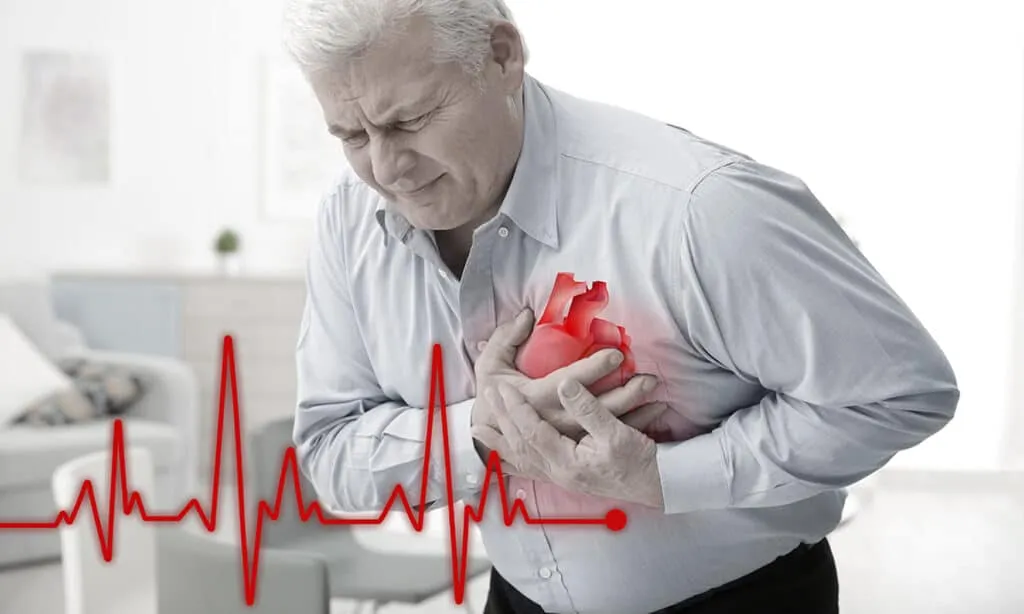Heart palpitations can be concerning, leading many to wonder what they mean and whether they should seek medical care. These sensations, often described as a fluttering, pounding, or irregular heartbeat, are common and usually harmless. Here is more information on palpitations and when to seek treatment:
What Are Heart Palpitations?
Heart palpitations occur when you become unusually aware of your heartbeat. This awareness may manifest as a feeling of your heart skipping beats, beating too quickly, or pounding harder than usual. While they are often harmless, frequent or severe palpitations may indicate an underlying condition that requires medical attention.
Symptoms
Palpitations can occur at any time, whether you are active, at rest, or in any other setting. Heart palpitations present in several ways. These sensations may last for only a few seconds or extend over a longer period. Some of the most commonly reported symptoms include:
- A Fluttering or Flapping Feeling in the Chest.
- A Racing Heartbeat, Even When at Rest.
- A Sensation of Your Heart Pounding Against Your Ribcage.
- An Irregular or Less Predictable Heartbeat.
Causes
A variety of triggers and factors can contribute to the occurrence of heart palpitations. Lifestyle factors, like consuming stimulants too much, such as caffeine, alcohol, or nicotine, may exacerbate existing symptoms. Physical activity and exercise may temporarily increase heart rate, adding to heart stress and possible discomfort.
Stress and anxiety have a significant impact on numerous body systems, as well. Heightened emotions due to stress can prompt a surge in adrenaline or other stress hormones. Other factors that may trigger palpitation symptoms include:
- Illnesses: Including fever, dehydration, or low blood sugar.
- Medications: Such as decongestants or stimulants.
- Underlying Heart Conditions: While less common, heart conditions, including arrhythmias or valve disorders, can cause many heart-related symptoms.
Even without the presence of a serious underlying condition, these factors can contribute to occasional palpitations.
When Should You Seek Treatment?
While heart palpitations are often harmless, there are situations where you should seek medical evaluation. If the palpitations are accompanied by other concerning symptoms, like chest pain, shortness of breath, dizziness, or fainting, consult a healthcare provider immediately. These symptoms could indicate a more serious issue requiring prompt medical action. Recurring or persistent palpitations that interfere with daily life are also worth discussing with a doctor. A healthcare professional can evaluate potential causes, such as anemia, hyperthyroidism, or arrhythmias, that might need further investigation or management.
What Treatments Can Help?
For occasional, harmless palpitations, simple lifestyle adjustments or stress management techniques may be sufficient to reduce discomfort. Treatment for heart palpitations depends on the underlying cause for each patient. Lifestyle changes like reducing caffeine or alcohol intake, quitting smoking, and adopting relaxation techniques like deep breathing or yoga may work for those with mild symptoms.
For those with an underlying heart condition, more specific treatments, ranging from medications to procedures, may be necessary, as determined by a cardiologist. Prescribed medications help those with structural heart diseases by managing underlying issues or regulating their heart’s rhythm. When experiencing any heart-related symptoms, monitor your health, taking into account any contributing factors.
Learn About Heart Palpitations
Heart palpitations are often harmless but can sometimes indicate an underlying health concern. Recognizing the symptoms, understanding potential causes, and knowing when to seek medical advice empowers you to make informed decisions about your health. Regular monitoring and consultations with healthcare professionals can provide additional guidance. Contact a cardiologist today.









Leave a Reply